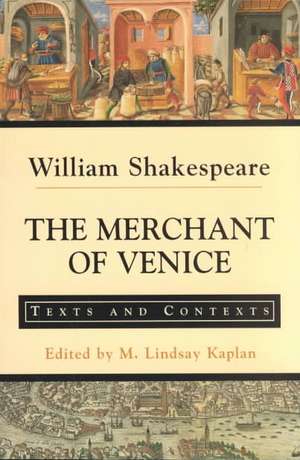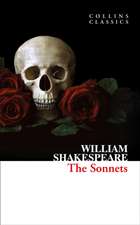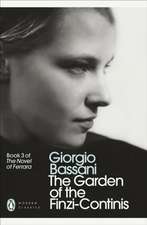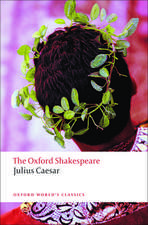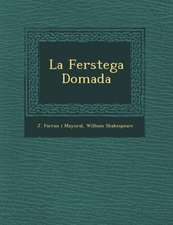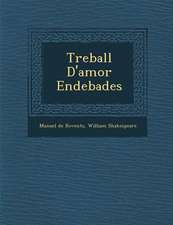The Merchant of Venice: Texts and Contexts: Bedford Shakespeare
Autor William Shakespeare Editat de M. Lindsay Kaplanen Limba Engleză Paperback – 28 feb 2002
"
Preț: 154.57 lei
Preț vechi: 225.73 lei
-32% Nou
29.58€ • 32.23$ • 24.92£
Carte indisponibilă temporar
Specificații
ISBN-10: 0312256248
Pagini: 377
Dimensiuni: 137 x 206 x 15 mm
Greutate: 0.39 kg
Ediția:First.
Editura: BEDFORD BOOKS
Seria Bedford Shakespeare
Notă biografică
Cuprins
William Shakespeare, The Merchant of Venice
(Edited by David Bevington)
Cultural Contexts
Nation, Race, and Religion
Thomas Coryate, From Coryates Crudities
Dudley Carleton, The English Ambassador’s Notes
William Bedell, Letter to Adam Newton
A Discovery of the Great Subtlety and Wonderful Wisdom of the Italians
Robert Wilson, From The Three Ladies of London
Sir Edward Coke, From The Reports
Fynes Moryson, From An Itinerary
John Leo, From A Geographical History of Africa
George Best, From A True Discourse of the Late Voyages of Discovery, for the Finding
of a Passage to Cathaya
John Leo, From A Geographical History of Africa
Sebastian Munster, From The Messiah of the Christians and the Jews
Andrew Willet, From Concerning the Universal and Final Vocation of the Jews
Jews
Merchants
Biblical Laws
Thomas Wilson, From A Discourse upon Usury by Way of Dialogue and Orations
Debate on the Usury Bill
Usury Bill
Francis Bacon, Of Usury
Sir Edward Coke, From The Institutes of the Laws of England
Yehiel Nissim da Pisa, From The Eternal Life
David de Pomis, From De Medico Hebraeo
Leon Modena, From The History of Rites, Customs, and Manners of Life, of the Present
Sir Thomas Sherley, The Profit That May Be Raised to Your Majesty out of the Jews
The Levant Company’s Charter
John Wheeler, From A Treatise of Commerce
Daniel Price, The Merchant: A Sermon Preached at Paul’s Cross
Jews as Other
Conversion
Jews in England
John Foxe, From Acts and Monuments
William Allen, From A True, Sincere, and Modest Defense of English Catholics
Robert Parsons, From A Brief Discourse Containing Certain Reasons Why Catholics
Refuse to go to Church
Queen Elizabeth I, Proclamations on Priests
St. Paul, On Law and Grace
Andrew Willet, From Tetrastylon Papisticum
Richard Bristow, From Demands to be Proponed of Catholics to the Heretics
William Perkins, From A Faithful and Plain Exposition upon the To First Verses of the
Gregory Martin, From Roma Sancta
Thomas Draxe, From The World’s Resurrection
Samuel Usque, From Consolation for the Tribulations of Israel
John Foxe, From Acts and Monuments
Raphael Holinshed, From Chronicles of England, Scotland, and Ireland
John Foxe, From Acts and Monuments
From Fleta
Examination of Roderigo Lopez
William Camden, From The History of Elizabeth, Queen of England
Friendship and Homosociality
Juan Luis Vives, From The Instruction of a Christian Woman
Thomas Becon, From The Catechism
Cornelius Agrippa, From Of the Nobility and Excellency of Womankind
Phillip Stubbes, From The Anatomy of Abuses
Alexander Niccholes, From A Discourse of Marriage and Wiving
Sir Thomas Smith, From De Republica Anglorum
Sir Thomas Elyot, From The Book Named the Governor
Philemon Holland, From Plutarch’s Morals
INDEX
Descriere
What was Shakespeare's attitude to Semitism? The Introduction to this edition of The Merchant of Venice opens by addressing this vital issue raised by the play, and goes on to study the sources, background, and date, includuing a discussion of Sigmund Freud's essay on 'The Three Caskets'. Professor Halio interprets the play's contradictions, inconsistencies, and complementarities, especially as these relate to the overarching theme of bonds and bondage. A survey of the play's stage history ranges from discussions of its early staging to important twentieth-century productions and performances outside England, particularly in Israel.The text, based on a fresh examination of the early editions, is presented in modernized spelling and punctuation. Unfailingly lucid and helpful, this is an ideal edition for students, actors, and the general reader. ABOUT THE SERIES: For over 100 years Oxford World's Classics has made available the widest range of literature from around the globe. Each affordable volume reflects Oxford's commitment to scholarship, providing the most accurate text plus a wealth of other valuable features, including expert introductions by leading authorities, helpful notes to clarify the text, up-to-date bibliographies for further study, and much more.
Textul de pe ultima copertă
The Merchant of Venice is best known for its complex and ambiguous portrait of the Jewish moneylender Shylock--and of European anti-Semitism. Fascinating in its engagement with prejudice, the play is also a comedy of cross-dressing and disguise, and a dramatic exploration of justice, mercy, and vengeance.
This volume contains the full text of the play with explanatory footnotes and marginal glosses for contemporary readers. An extensive introduction and well-rounded selection of background materials not only illuminate anti-Semitism in early modern England but also provide context for other facets of the play, including its comic plot of love and marriage, its examination of commerce and international trade, and its themes of revenge and the law.
Recenzii
Even as the New Kittredge Shakespeare series glances back to George Lyman Kittredge's student editions of the plays, it is very much of our current moment: the slim editions are targeted largely at high school and first-year college students who are more versed in visual than in print culture. Not only are the texts of the plays accompanied by photographs or stills from various stage and cinema performances: the editorial contributions are performance-oriented, offering surveys of contemporary film interpretations, essays on the plays as performance pieces, and an annotated filmography. Traditional editorial issues (competing versions of the text, cruxes, editorial emendation history) are for the most part excluded; the editions focus instead on clarifying the text with an eye to performing it. There is no disputing the pedagogic usefulness of the New Kittredge Shakespeare's performance-oriented approach. At times, however, it can run the risk of treating textual issues as impediments, rather than partners, to issues of performance. This is particularly the case with a textually vexed play such as Pericles: Prince of Tyre . In the introduction to the latter, Jeffrey Kahan notes the frequent unintelligibility of the play as originally published: "the chances of a reconstructed text matching what Shakespeare actually wrote are about 'nil'" (p. xiii) But his solution to use a "traditional text" rather than one corrected as are the Oxford and Norton Pericles obscures how this "traditional text," including its act and scene division, is itself a palimpsest produced through three centuries of editorial intervention. Nevertheless, the series does a service to its target audience with its emphasis on performance and dramaturgy. Kahan's own essay about his experiences as dramaturge for a college production of Pericles is very good indeed, particularly on the play's inability to purge the trace of incestuous desire that Pericles first encounters in Antioch. Other plays' cinematic histories: Annalisa Castaldo's edition of Henry V contrasts Laurence Oliver's and Branagh's film productions; Samuel Crowl's and James Wells's edition of (respectively) I and 2 Henry IV concentrate on Welle's Chimes at Midnight and Gus Van Sant's My Own Private Idaho ; Patricia Lennox's edition of As You Like It offers an overview of four Hollywood and British film adaptations; and John R. Ford's edition of A Midsummer Night's Dream provides a spirited survey of the play
